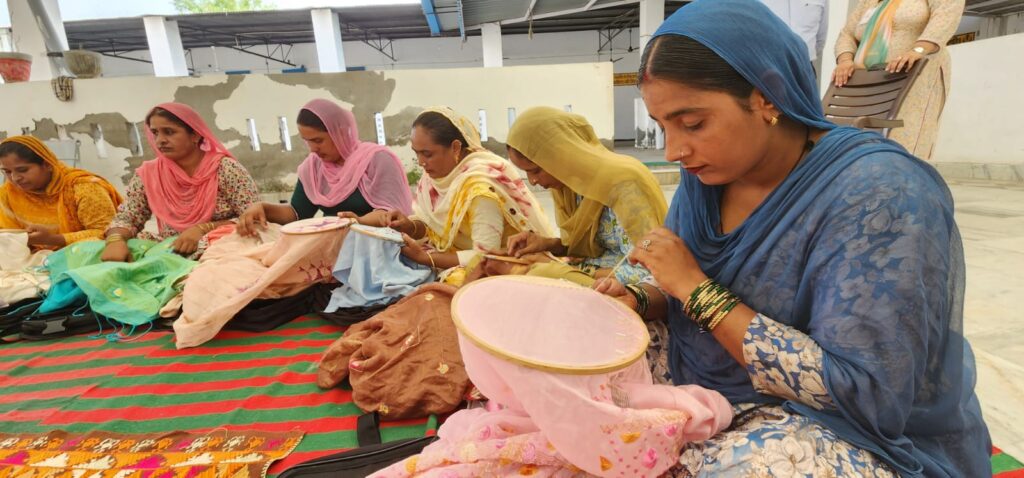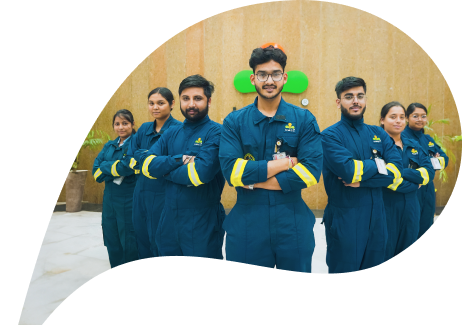Nearly 150 rural women of underprivileged families from Bathinda district are experiencing a change in their socio-economic standing by learning phulkari, a traditional embroidery of Punjab with flower work.
Trained by the Nabha Foundation, a voluntary organisation run by the decedents of the erstwhile royal family of Nabha, these empowered women have now started earning by selling strictly manual phulkari products of saree, suits, dupattas and office file covers etc.
Kiran Kaur, 30, who has been learning the fading art of phulkari for the last nine months, said she had never thought of earning.
“My husband is an electrician and I hardly understood embroidery or stitching. When I learnt about an announcement from the village gurdwara that a ‘jethebandi’ (organisation) is inviting women to learn and earn, I expressed my interest in it. It infused confidence in me to move freely in the village and hold meetings with the NGO. My husband encouraged me and I enrolled myself for free training,” she said while doing embroidery on a women’s kurta.
Manpreet Kaur from Naurang village in the adjoining Sirsa district of Haryana, who had no understanding of marketing, recently spent 15 days at Dilli Haat, a famous craft bazaar by the Delhi state tourism department, selling products at the Nabha Foundation outlet.
“My parents passed away long back and my brother is the sole breadwinner as we live with our maternal uncle. Now, I can earn ₹2,400 for completing phulkari on a suit and ₹900 for embroidery work on dupatta. After imparting training, the Nabha Foundation gave me an opportunity to learn nuances for marketing of the finished products,” she said.
Khushi, 23, who could not pursue studies after matriculation, was looking confident while showing her work. “I belong to a family of a small farmer with no means to pursue higher education. Within a few months, I completed the assigned work of floral motifs on dupatta border and a suit. The team from the foundation assigns us work and collect it on completion. Payment is done based on motif work,” she added.
Project manager Roop Singh said Bathinda-based HPCL-Mittal Energy Limited (HMEL), a public-private venture of the mega oil refinery, is financially supporting the social initiative in 13 villages.
Besides empowering women, the project is aimed at reviving the traditional art that is vanishing from the state.
“Experts from the Nabha Foundation are imparting training after screening for basic phulkari work followed by advanced training to the rural women. All items such as frame, threads, needles etc are provided and the women are paid against the finished products,” he said. Jaspal Kaur from Mahi Nangal village said it was a memorable moment when she was paid ₹4,000 a few months ago for completing embroidery. “It was for the first time that I earned something. I realise that earning is about self-esteem and now I can contribute to my family’s needs in my way. Even the village elders acknowledge my effort to assist my husband financially,” she added.
Another enterprising woman, Rajwinder Kaur, said she had learnt about phulkari from her mother but she had never experimented with it.
“We are artisans and we do not use any material to trace or mark on the fabric. Phulkari is all about fine technique and the finesse is visible on the finished products. Every day, I take out time from household chores, including the dairy work, to complete my assigned phulkari work in time,” she added.
Source: Hindustan Times


 no updates
no updates